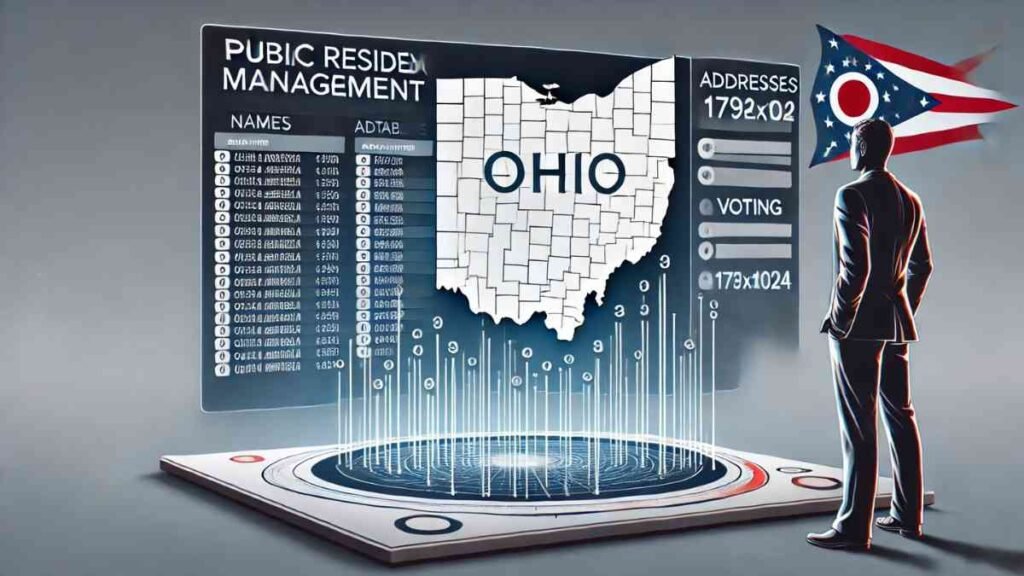What is the Ohio Resident Database?
The Ohio Resident Database is a public repository of information about residents of the state of Ohio. This database collects and organizes data from publicly available records, making it a powerful tool for various purposes, including verifying contact details, conducting background checks, and accessing demographic information. It serves as a critical resource for businesses, government agencies, and individuals seeking reliable data.
Importance of the Ohio Resident Database
The Ohio Resident Database plays a vital role in maintaining transparency and providing access to public records. Here are some reasons why this database is essential:
- Accessibility: It offers an easy way to find information about Ohio residents.
- Public Transparency: It ensures that public records are available for legitimate purposes.
- Verification Tool: Organizations and individuals use it to verify identities, addresses, and other key details.
Features of the Ohio Resident Database
The database offers a variety of features to its users, making it an indispensable tool for those seeking information. These features include:
- Comprehensive Information: Provides data such as names, addresses, phone numbers, and voter registration details.
- Search Options: Users can search by name, address, or other identifiers.
- Accuracy: The database is regularly updated to ensure the accuracy of its information.
Who Uses the Ohio Resident Database?
Several groups benefit from the Ohio Resident Database, including:
- Government Agencies: For verifying residency and voter registration.
- Businesses: To validate customer information and enhance marketing efforts.
- Individuals: For reconnecting with old acquaintances or conducting personal research.
Ethical Use of the Database
While the Ohio Resident Database provides valuable information, it is crucial to use it responsibly. Misusing this data can lead to legal consequences and breaches of privacy. Ethical guidelines for its use include:
- Avoiding Harassment: Do not use the database to contact individuals inappropriately.
- Legal Compliance: Use the data only for lawful purposes.
- Respect for Privacy: Refrain from sharing sensitive information without permission.
How to Access the Ohio Resident Database
Accessing the Ohio Resident Database is straightforward. Most platforms offering this information allow users to:
- Search by Criteria: Enter a name, address, or other details to retrieve results.
- Filter Results: Narrow down searches using filters like location or demographics.
- View Records: Access detailed public records for specific individuals or households.
Benefits of the Ohio Resident Database
The Ohio Resident Database is a treasure trove of information with numerous benefits:
- Efficiency: Quickly locate accurate information without extensive manual searches.
- Cost-Effectiveness: Saves time and resources for organizations needing public records.
- Enhanced Communication: Facilitates better outreach for businesses and government agencies.
Challenges and Limitations
Despite its advantages, the Ohio Resident Database has some challenges:
- Data Accuracy: While regularly updated, some records may contain outdated information.
- Privacy Concerns: Public access can lead to potential misuse of information.
- Accessibility: Not all users may have the skills or resources to navigate the database effectively.
Ensuring Data Security
To maintain trust, the Ohio Resident Database incorporates measures to safeguard sensitive information. Key security practices include:
- Encryption: Protecting data transmissions with encryption technology.
- User Authentication: Ensuring only authorized users can access certain records.
- Regular Audits: Conducting periodic reviews to identify and address vulnerabilities.
The Role of the Ohio Resident Database in Society
The database contributes significantly to Ohio’s administrative and social framework. It enhances transparency, supports economic activities, and fosters trust between citizens and institutions.
Conclusion
The Ohio Resident Database is an invaluable resource that offers extensive information about residents in the state. Its accessibility, comprehensiveness, and utility make it a cornerstone for businesses, government agencies, and individuals alike. However, responsible use is essential to ensure privacy and legality. By understanding its features, benefits, and limitations, users can maximize its potential while respecting ethical boundaries.
For More Visit, MirrorMagazine.co.uk


